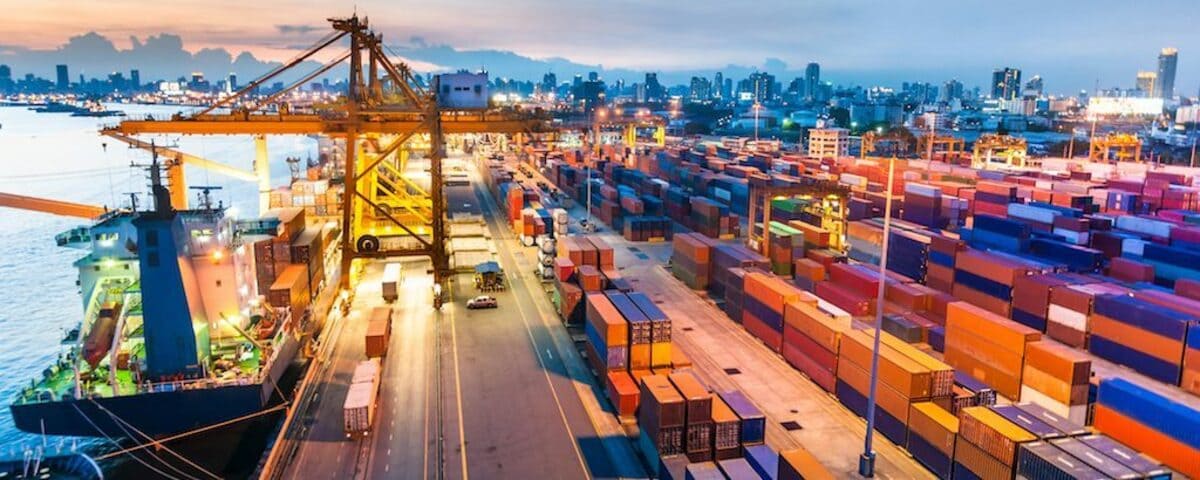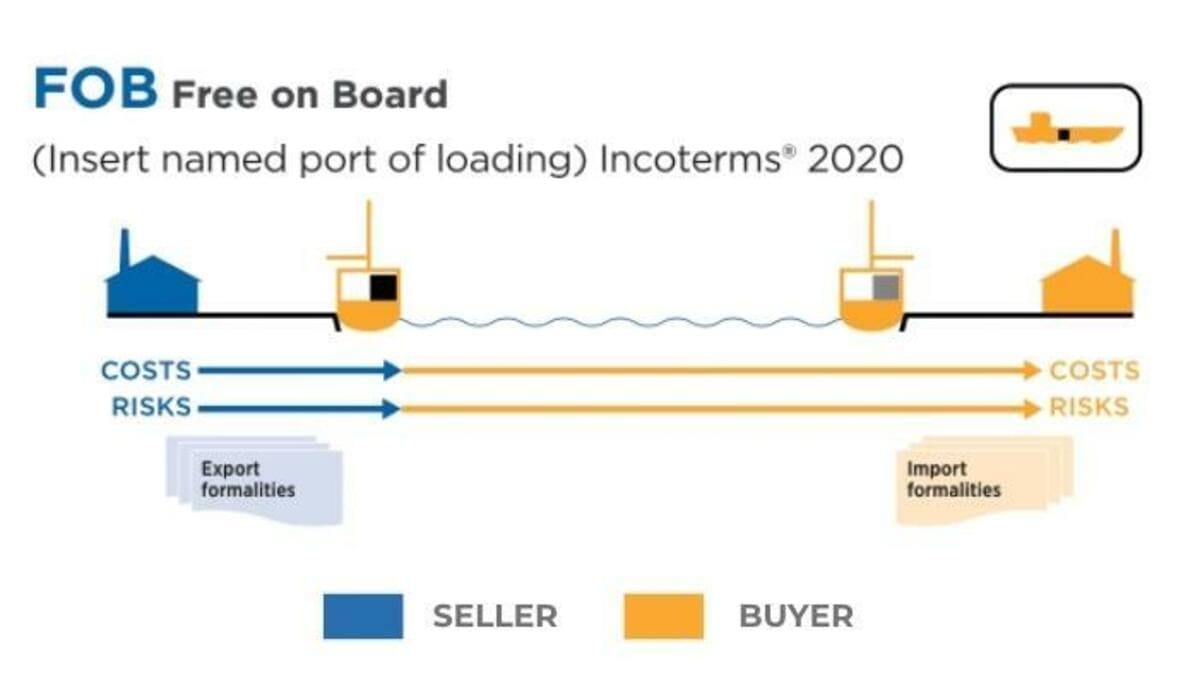
Incoterms rules determine who (the seller or the buyer) is responsible for transportation, insurance, customs clearance and the risk of loss or damage to the goods and until what point. In this article, we talk about Free on Board (FOB) delivery terms.
FOB ("Free on Board") is an Incoterms term used only for transportation by water. Under the terms of FOB, the seller is obliged to deliver the cargo on board the vessel specified by the buyer. From this moment on, all responsibility and risks of transportation lie with the buyer.
Once the cargo has boarded the ship, all costs and responsibility for delivery are borne by the buyer.

Distribution of costs and risks between the seller and the buyer when using FOB terms for the delivery of goods
Thus, the seller can freely choose a forwarder whom he trusts and minimize possible risks in the process of delivering the goods.
FOB terms of delivery require the buyer to actively participate in logistics processes and customs formalities, so his experience and knowledge are of great importance. In general, FOB is suitable for:

Thanks to well-established logistics and control over the transportation process, the buyer can optimize the transportation route, reduce delivery time and costs
Large batches of goods. The purchase of large lots allows you to scale logistics processes and reduce the cost of delivery per product unit.
Importantly. FOB may prove to be a difficult and unprofitable option for buyers without experience of cooperation with international suppliers or for small batches of goods.
Before choosing the terms of delivery, we recommend that you carefully analyze your needs, experience and resources, as well as take into account the specifics of the goods and the market in which you operate.
If you need to organize international cargo transportation, DiFFreight is a reliable logistics partner for your business. We organize the purchase and delivery of goods from China on a turnkey basis. We are happy to help you charter the vessel, pay local costs in the destination country, clear import customs and pay duties, and deliver your cargo directly to your door.